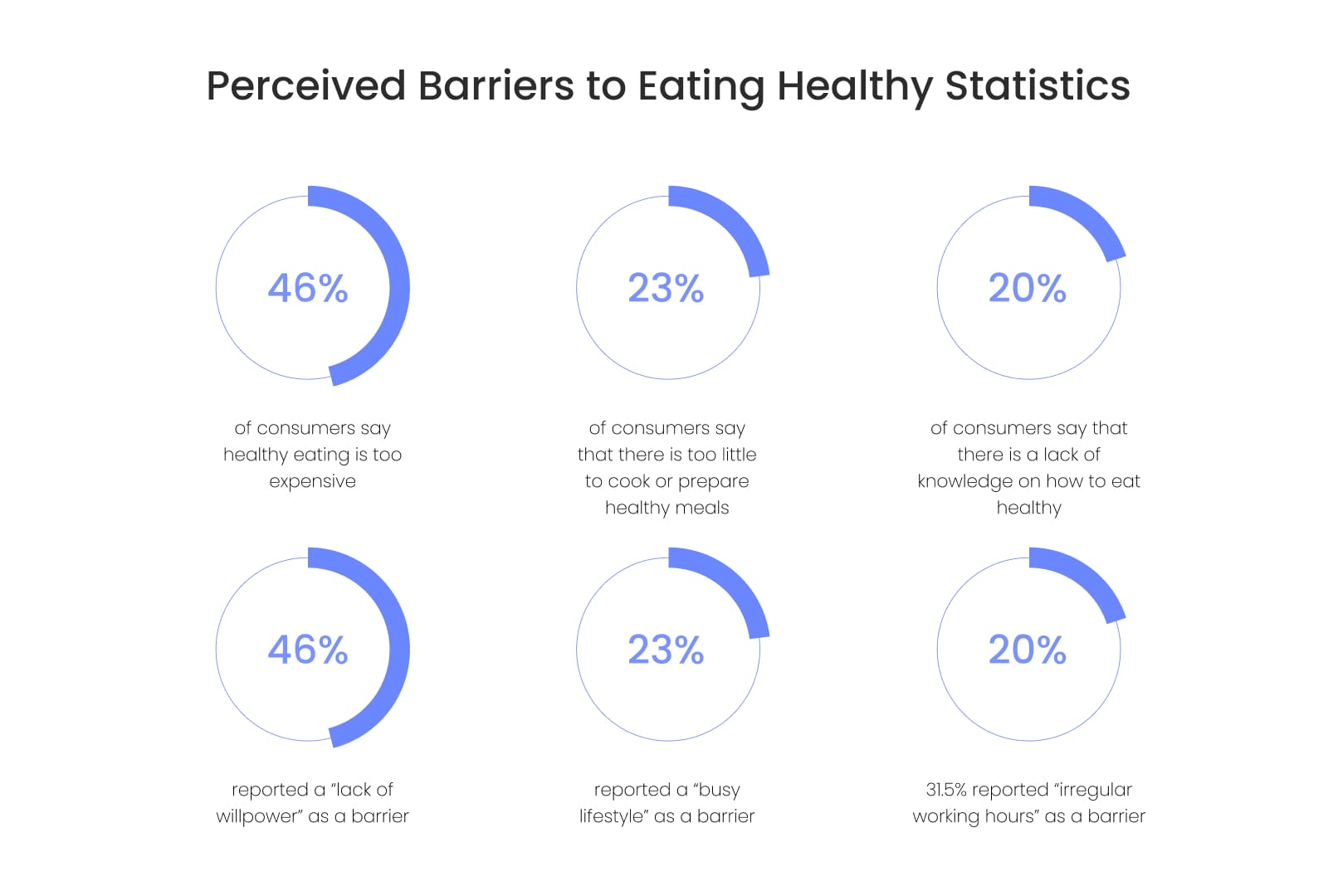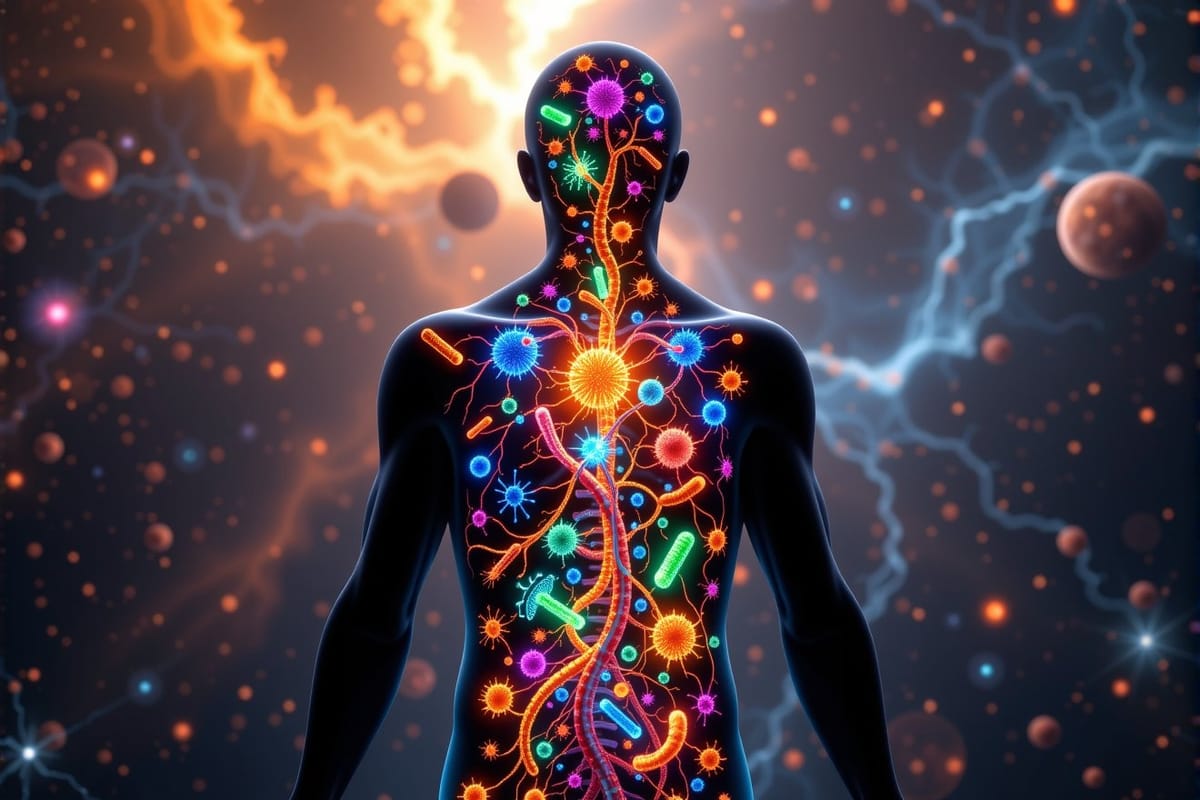Top Trends in Nutrition for 2025: What Healthcare Professionals Need to Know!
As we move further into 2025, the world of nutrition is evolving rapidly. Healthcare professionals are at the forefront of this change, adapting to new scientific findings, technology advancements, and shifts in consumer behaviors. From personalized diets to sustainable food practices, nutrition trends are expanding beyond traditional approaches. As a healthcare professional, staying ahead of these trends is crucial to providing the best care for your patients. Let’s explore the top trends in nutrition for 2025 that every healthcare professional should be aware of.
1. Personalized Nutrition: Tailoring Diets to the Individual
One of the most significant trends in nutrition for 2025 is the rise of personalized nutrition. With advances in genetic testing, microbiome analysis, and wearable health technology, nutrition is no longer a one-size-fits-all approach. The science of nutrigenomics (how nutrition affects our genes) is becoming more mainstream, allowing healthcare professionals to offer customized dietary recommendations based on an individual’s genetic makeup, gut microbiota, and lifestyle.
For example, some people may be genetically predisposed to absorb certain nutrients more effectively, while others may have sensitivities to specific foods. Personalized nutrition can address these unique needs, optimizing an individual’s health and well-being. The use of DNA tests and microbiome profiling will likely become standard practice in healthcare settings, enabling healthcare providers to create highly targeted dietary plans for patients.
What healthcare professionals need to do: Stay updated on the latest advancements in nutrigenomics and microbiome research, as these will be key to developing personalized nutrition plans for your patients. Consider integrating genetic and microbiome tests into your practice to offer more precise, data-driven dietary guidance.
2. Gut Health and the Microbiome
Speaking of the microbiome, gut health continues to be a top focus in nutrition research and healthcare. In 2025, we’ll see an even greater emphasis on the role the gut plays in overall health, particularly in areas such as immune function, mental health, and chronic disease management. A healthy gut microbiome is increasingly understood to be the foundation of good health, influencing everything from digestion to brain function.
The growing awareness of the connection between gut health and conditions like anxiety, depression, autoimmune diseases, and even obesity is prompting a deeper dive into the gut-brain axis. Probiotics, prebiotics, and fermented foods are becoming key dietary recommendations, alongside the use of gut microbiome testing to better understand how individual patients’ gut ecosystems can be supported.
What healthcare professionals need to do: Educate patients on the importance of gut health and its link to overall wellness. Consider recommending gut-healing foods (such as fermented foods, fiber-rich fruits, and vegetables) and probiotic supplements as part of a holistic approach to health. Familiarize yourself with microbiome testing technologies to better assess patients' gut health.
3. Plant-Based Diets and Sustainability
The movement toward plant-based eating has been gaining momentum for years, but in 2025, it is set to take on a larger, more prominent role in nutrition trends. Whether for health, ethical, or environmental reasons, more people are choosing plant-based diets, including vegan, vegetarian, and flexitarian options. With increasing research pointing to the health benefits of plant-based foods, including improved heart health, lower cancer risk, and better blood sugar regulation, healthcare professionals are encouraged to guide their patients toward plant-based eating patterns.
Additionally, sustainability is a key consideration for 2025. As climate change continues to be a pressing global issue, healthcare professionals will be increasingly called upon to promote diets that are not only good for individual health but also better for the planet. Plant-based foods have a smaller environmental footprint compared to animal-based products, making them a critical piece of the sustainability puzzle.
What healthcare professionals need to do: Stay informed about the nutritional benefits of plant-based foods, and help patients incorporate more plant-based meals into their diets. Promote sustainable eating by encouraging plant-forward diets and the consumption of locally sourced, seasonal, and eco-friendly foods.
4. Functional Foods and Superfoods
In 2025, functional foods will be a significant trend as consumers continue to seek out foods that not only nourish but also provide additional health benefits. These foods go beyond basic nutrition by offering bioactive compounds that help prevent disease and promote wellness. For example, turmeric and ginger are known for their anti-inflammatory properties, while blueberries are rich in antioxidants.
Superfoods, including quinoa, chia seeds, spirulina, and matcha, will remain prominent in health-conscious diets. However, what’s truly exciting in 2025 is the growing integration of functional foods into everyday eating. The rise of fortified foods, which may include ingredients like omega-3s, vitamin D, or probiotics, will continue to offer consumers easy ways to incorporate additional nutrients into their meals.
What healthcare professionals need to do: Educate patients about functional foods and the added benefits they provide. Recommend superfoods that align with your patients’ specific health goals, whether it's improving heart health, boosting immunity, or enhancing brain function. Incorporate functional foods into your patient care plans, especially for those with chronic health conditions.
5. Technology-Driven Nutrition: Wearables and Health Apps
Nutrition technology is rapidly advancing, and in 2025, wearables and nutrition apps are becoming powerful tools for healthcare professionals and patients alike. Devices like smartwatches and continuous glucose monitors (CGMs) allow individuals to track their food intake, physical activity, and even blood sugar levels in real time. These tools provide real-time feedback, making it easier for patients to make informed dietary decisions throughout the day.
Furthermore, the use of AI-powered apps is on the rise, offering tailored nutrition advice based on users' health data, preferences, and goals. These platforms can analyze a person's diet, recommend nutrient-dense foods, and even track micronutrient intake.
What healthcare professionals need to do: Encourage patients to use wearables and nutrition tracking apps to monitor their diet and overall health. Stay updated on the latest tech tools, such as CGMs and nutrition apps, and consider incorporating them into your practice for more personalized care. Collaborate with tech companies to bring the latest nutrition innovations to your patients.
6. Holistic Approaches to Weight Management
While weight loss has always been a focus of nutrition, in 2025, we’ll see a shift toward holistic weight management that considers not just calorie intake but also mental health, sleep, and stress. Mindful eating, which encourages paying attention to hunger cues and eating without distractions, will become more integrated into dietary counseling. Coupled with a focus on self-compassion and behavioral change, this holistic approach aims to create sustainable, long-term health improvements rather than quick fixes.
What healthcare professionals need to do: Address weight management as a multifactorial issue that requires a holistic approach. Offer counseling on mindful eating, stress management, and the importance of sleep, in addition to creating well-balanced, nutrient-dense meal plans.

Conclusion
As we move through 2025, nutrition is rapidly evolving in exciting and impactful ways. Healthcare professionals need to stay informed about these trends to continue providing the best care for their patients. Personalized nutrition, gut health, plant-based diets, functional foods, nutrition technology, and holistic weight management will shape the future of nutrition in healthcare. By embracing these trends, healthcare providers can offer more comprehensive, personalized, and sustainable care that improves both individual health and the planet’s well-being.
Are you ready to stay ahead of these nutrition trends? The future of health is in your hands!







Comments